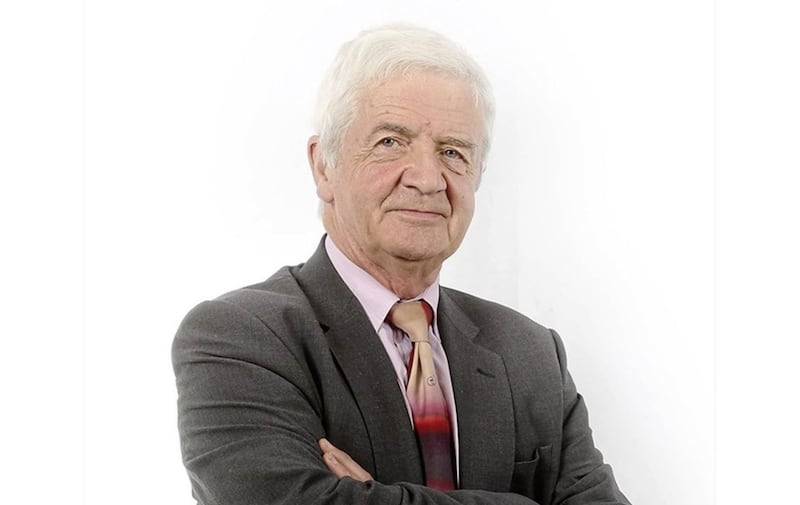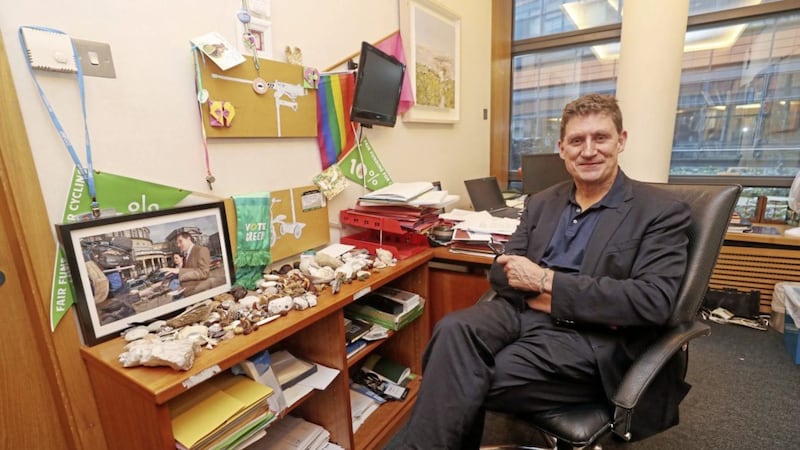The south's long-delayed peace process has finally begun. Almost a century after the fighting stopped, the Irish civil war's political settlement is taking shape.
Fianna Fáil and Fine Gael, known as the two civil war parties, have agreed to share power in a coalition government, which is planned to take office a week from today.
(Neither party actually existed at the time of the civil war. They evolved from opposing sides, but they are called civil war parties because the Irish have long memories.)
In some respects, Dublin's peace process is a pale reflection of Stormont's reconstruction, without the compulsory coalition. Even its proposed Programme for Government is titled, "Our Shared Future" which appears borrowed from Belfast. (A few RHI-type scandals in the Dáil and we will have an all-Ireland peace process.)
But (and it is an important "but") the new coalition cannot succeed without Green Party involvement. Members of the two big parties support the proposed coalition, but the 3,000 Green Party members (nearly one third of whom are from the north) have adopted a republican-style stance by splitting into two broad factions.
One wants to focus solely on environmental issues. The other favours a wider left-wing approach to public policy. The battle between the green Greens and the red Greens will be settled in the coming week.
To date, the formation of the new government looks like a DIY job: it took a long time to complete, it is a bit rough around the edges and it cannot be guaranteed to last.
But for Fianna Fáil, it represents a last chance to be a major force in Irish politics. Having won only 22 per cent support in February's election, the party's opinion poll rating has now slipped to 14 per cent, just two points ahead of the Greens.

Boosted by Leo Varadkar's management of the pandemic, Fine Gael's support has gone in the opposite direction. It is now the most popular party with 37 per cent support and public satisfaction with the government has reached an impressive 72 per cent.
All of which leaves Sinn Féin out in the political cold. Although it topped the February poll and still commands 25 per cent support, the party is destined for opposition. Normally that would be a jumping off point for entering government at the next election.
But SF is already in government in Belfast, which will leave its record there exposed to scrutiny by the possible new government in the Dáil. So Stormont is about to have a new opposition - in Dublin. (This may explain SF's newfound love for orderly government in Belfast).
SF is already on the defensive, complaining that the two big parties have stolen many of their policies. (This may prompt the SDLP to issue a statement of just one word: "karma", followed by a smiley face.)
The inclusion of the Greens will create a slightly more radical administration, but much of the Programme for Government (PfG) is vague and aspirational. At 50,000 words it is one of the longest ever, suggesting that there is a deep level of mistrust between the parties, somewhat similar to the two-year FF/Labour coalition of 1992.
The PfG's weakness is that it assumes a theoretical world. It does not (and cannot) factor in the global and national economic consequences of Covid-19 and Brexit, so new priorities will probably re-shape government policy.
What happens if the Greens reject coalition? Presumably FF and FG will form a minority government. A SF-led opposition could force another election, but that would probably see the return of a FG government, with reduced FF support. It would not guarantee SF's entry into office.
But not forcing an immediate election may allow FG to grow stronger for a later poll. So there are decisions ahead for all the main players, but right now the most important one is being made in the Green Party.
The outcome of their civil war will determine the final settlement of the one which ended a century ago.









